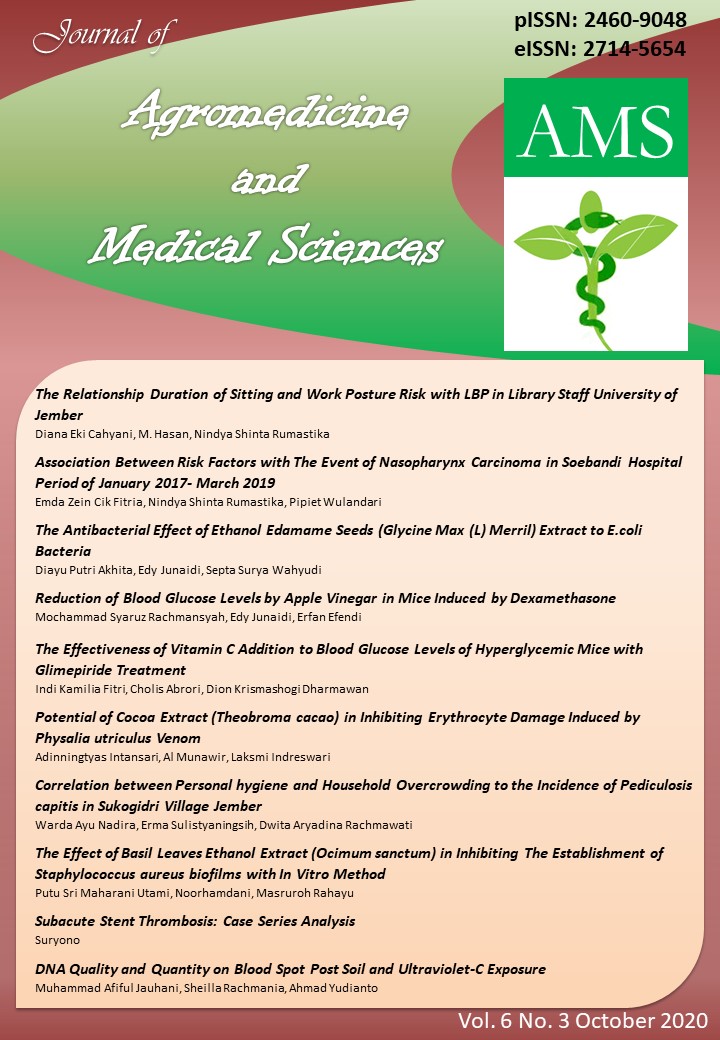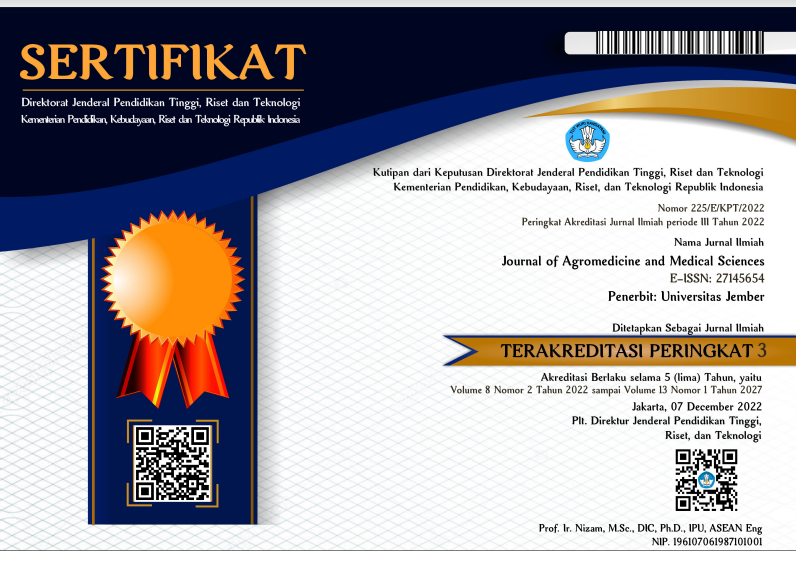The extract of kemangi leaves as inhibitor of biofilm from Staphylococcus aureus in vitro
DOI:
https://doi.org/10.19184/ams.v6i3.17541Abstract
Biofilm is a mechanism of bacterial defense against antimicrobials that can cause resistance. Staphylococcus aureus is a biofilm-producing bacteria and the most often cause of skin and soft tissue infections. Therefore, efforts are needed to prevent the formation of Staphylococcus aureus biofilms. Basil leaves are herbal plants that contain eugenol and tannin compounds, which are thought to inhibit the formation of biofilms. This research is a laboratory experimental study that aims to prove the effect of basil leaves ethanol extract (Ocimum sanctum) on the establishment of Staphylococcus aureus biofilms with in vitro method and determine the minimum inhibitory biofilm concentration needed. In this study, the tube method with 7 different concentrations was used. The results of biofilm ring formation obtained and measured quantitatively using Mean Gray Value in Adobe Photoshop CS6. From the study’s results, is found that the increase in extract concentration is directly proportional to the thinning of the biofilm ring on the tube with a minimum inhibitory concentration of biofilm at a concentration of 30%. The Pearson correlation test showed a very strong and significant correlation (r = 0.898, p = 0,000), and the Oneway ANOVA comparison test known a significant difference among the mean of each group (p = 0,000). From these results it can be known that the ethanol extract Ocimum sanctum can inhibit the formation of Staphylococcus aureus biofilms in vitro.






















